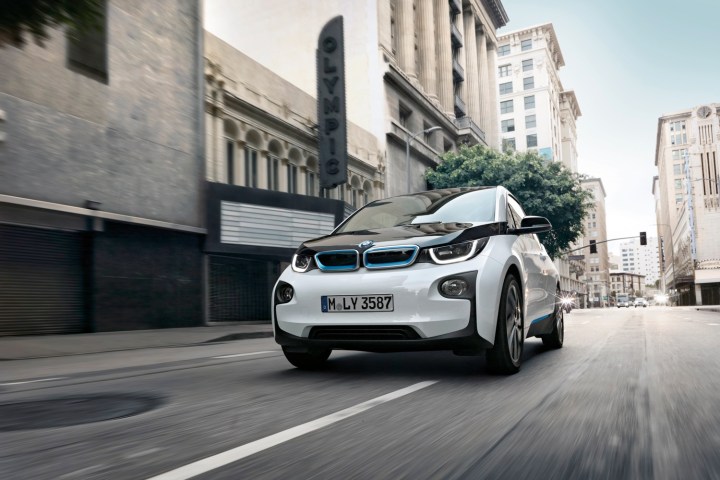
It turns out that when lithium-ion batteries can no longer hold enough charge to power vehicles for an acceptable driving range, they still have plenty of use for other applications. According to the Center for Sustainable Energy (CSE), lithium-ion batteries typically have a useful life in vehicles for eight to 10 years. After that point, second-life applications can help with the batteries’ initial cost by virtue of realizable benefits to consumers and utility companies over time.
BMW and Bosch Energy Storage Solutions combined 2,600 used EV battery modules from 100 vehicles to build a 2.8-mWh stationary storage system at a Vattenfall charging station in Hamburg, Germany. The combined battery modules were installed as an extra energy source for peak demand periods.
According to a statement from Bosch, “The electricity storage facility consists of 2,600 battery modules from over 100 electric vehicles. It has a power rating of two megawatts (MW) and a storage capacity of 2,800 kilowatt-hours (kWh). This is enough to supply electricity to an average two-person household for seven months. However, the stored energy is not intended for general supply, but instead is sold on the primary control reserve market by Vattenfall, along with power from other flexibly controllable facilities.”
What that means is even if EV batteries can no longer hold enough juice for you to drive your car reasonable distances between charges, they are not useless and they even have monetary value as second-source power reserve applications.
The price of lithium-ion batteries is falling. With expected ramped up manufacturing capacity as companies ready themselves for what looks like an inevitable shift to electric vehicles during the next few decades, there will eventually be millions upon millions of batteries that eventually can no longer cut it in EV applications. If those same batteries can be re-purposed for use as ancillary energy storage, it is not inconceivable your own used EV batteries might be hooked up to solar panels located on your roof to hold extra power for a cloudy day.
Editors' Recommendations
- 2024 BMW i5 unveiled as the first electric 5 Series
- Can electric car batteries be recycled?
- Business upfront, 31-inch TV in the back. BMW’s electric i7 is a screening room on wheels
- The all-electric BMW i7 is a home theater on wheels
- BMW shows off an electric car with color-changing paint at CES 2022




